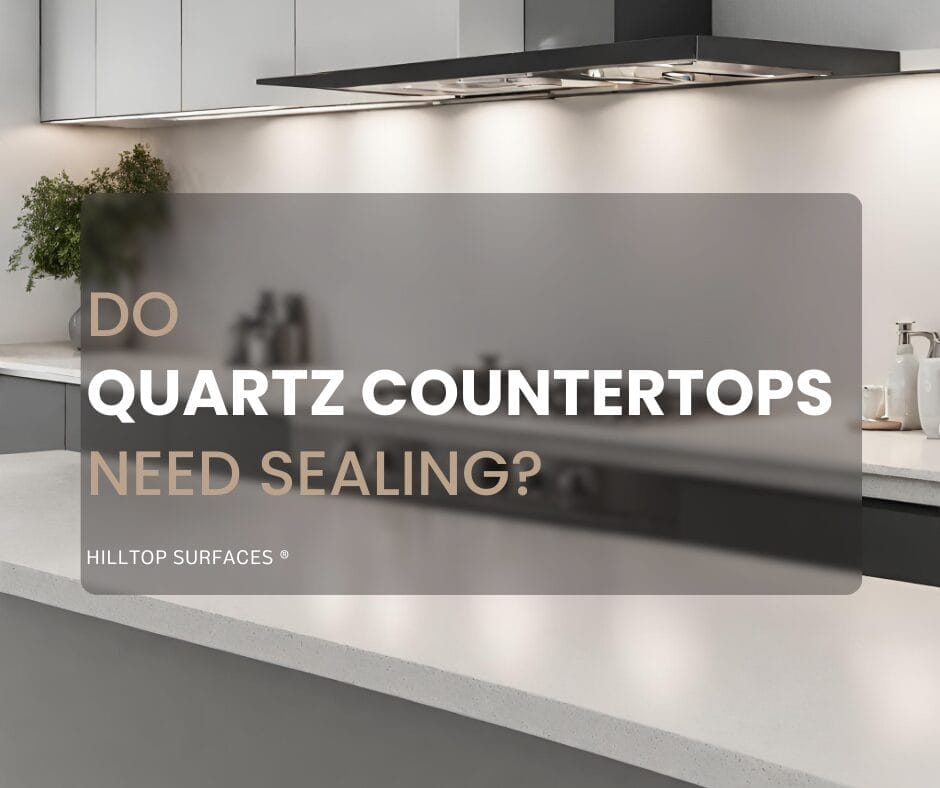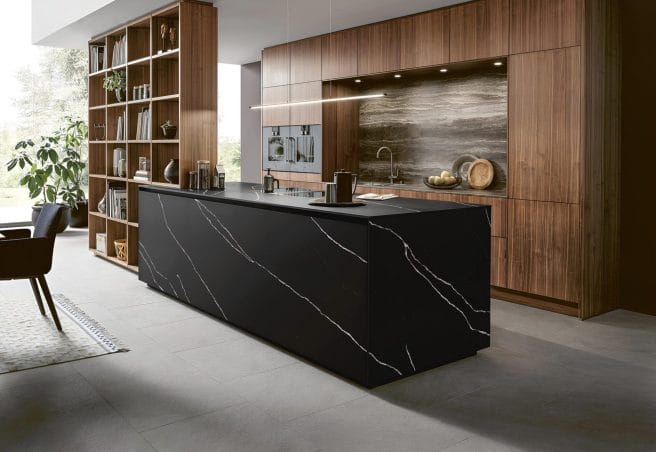
When it comes to selecting the ideal countertop material for your kitchen or bathroom, one of the critical considerations is maintenance, particularly when it involves sealing. Homeowners often ask, “Do quartz countertops need sealing?” This is a pertinent question, especially for those who seek both beauty and functionality in their home design. In this blog, we’ll explore the maintenance needs of quartz countertops, focusing on whether they require sealing and what makes them a popular choice for modern homes.
Understanding Quartz Countertops
Quartz countertops are renowned for their durability and aesthetic appeal. Unlike natural stone options like granite or marble, quartz countertops are engineered from natural quartz crystals combined with resins and pigments. This composition results in a virtually impermeable surface, which brings us to the question of sealing.
The Impermeable Advantage of Quartz
The virtually impermeable nature of quartz is one of its most significant advantages. In contrast to porous surfaces that have tiny holes or pores, nonporous materials like quartz do not allow liquids or air to pass through. This quality is crucial when considering the hygienic aspects of kitchen and bathroom surfaces.
Sealing: Is it Necessary for Quartz?
The straightforward answer is no. Quartz countertops do not require sealing. Thanks to their virtually impermeable surface, they are naturally resistant to staining and do not harbor bacteria, mold, or mildew. This resistance is a significant relief to homeowners, as it reduces the maintenance effort and cost typically associated with natural stone countertops.
Ease of Cleaning and Maintenance
Quartz countertops are celebrated for being low maintenance. Cleaning is a breeze; usually, a simple wipe down with soap and water is all that’s needed. The fact that you don’t have to worry about sealing, resealing, or special cleaners adds to the practicality of quartz as a countertop material.
Durability and Longevity
Apart from not requiring sealing, quartz countertops are also known for their durability. They are highly resistant to scratches and chips, making them a practical choice for busy kitchens. However, it’s important to note that while quartz is resistant to heat, excessive heat can damage the surface, so using trivets or hot pads is recommended.
Styling Your Home with Quartz
Quartz comes in a variety of colors and patterns, offering flexibility in design. Whether you prefer the minimalist look of pure white countertops or the sophisticated appeal of patterned quartz, there’s a style to suit every taste.
Eco-Friendly and Safe
For environmentally conscious homeowners, quartz is an appealing choice. The materials used are abundant and combined in a way that is considerate of environmental impact. Furthermore, the safety of quartz countertops, free from the risks of bacterial contamination, makes them a health-conscious choice.
What Happens If You Don’t Seal Quartz?
The good news is that quartz countertops do not require sealing at all. Quartz, being a virtually impermeable material, naturally resists staining and doesn’t harbor bacteria or viruses. Unlike natural stone surfaces like granite or marble, which are porous and therefore more susceptible to staining and bacterial growth, quartz maintains its integrity and appearance without the need for a protective sealant. So, if you don’t seal quartz, nothing detrimental happens to the material; it continues to be durable, hygienic, and low maintenance.
Why Don’t You Have To Seal Quartz Countertops?
Quartz countertops are engineered stone surfaces made from a mixture of ground quartz, resins, and pigments. This manufacturing process results in a very dense, virtually impermeable surface. The virtually impermeable nature of quartz is the primary reason why it doesn’t require sealing. Since liquids and substances cannot penetrate the surface, there’s no risk of internal staining or bacterial growth within the countertop material. Additionally, the resin binders that are part of its composition create a permanently sealed surface. Therefore, the physical and chemical properties of quartz inherently protect it, eliminating the need for periodic sealing.
How Do I Protect My Quartz Countertop?
While quartz countertops are durable and low maintenance, there are still some best practices to follow to ensure they remain in excellent condition:
- Use Trivets and Hot Pads: Although quartz is relatively heat resistant, prolonged or direct exposure to high heat can cause damage. Use trivets or hot pads under hot pots and pans.
- Avoid Harsh Chemicals: Harsh chemicals and cleaners, like bleach or abrasive scrubbers, can damage the surface. Stick to mild soap and water for daily cleaning.
- Clean Spills Promptly: Even though quartz is stain-resistant, it’s still a good practice to clean up spills, especially from acidic substances like wine or coffee, promptly to avoid any potential surface etching.
- Use Cutting Boards: Although quartz is scratch resistant, cutting directly on the surface can dull your knives and potentially mar the countertop. It’s recommended to use cutting boards.
- Avoid Excessive Pressure: While extremely durable, avoid applying excessive force or pressure to the countertops to prevent chips or cracks.
Download the complete care and maintenance guide for quartz countertops.
Final Thoughts
In conclusion, the question of whether quartz countertops need sealing can be confidently answered with a no. Their virtually impermeable nature, coupled with ease of maintenance, durability, and aesthetic versatility, makes quartz an excellent choice for modern homes. Homeowners looking for a hassle-free, elegant countertop solution will find quartz to be an ideal fit.
For those interested in exploring a range of quartz countertop options, remember to consider factors like color, pattern, and overall design to ensure that your choice beautifully complements your home’s interior.

